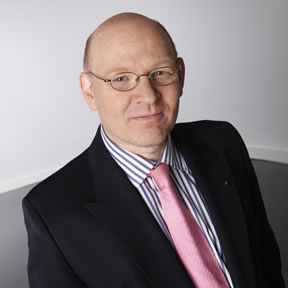Earlier this year a group of bishops from the Italian region of Tavoliere met with Pope Francis. Such meetings are held only every five years, and are an opportunity for local episcopal leaders to explain to the Holy Father the most pressing and challenging concerns that they have. The great dilemma for these men, it seemed, was not the state’s increasingly aggressive war against the Church, not the slaughter of myriad unborn babies, not the loss of countless souls through militant secularism disguised as Catholic education, not same-sex marriage ravaging western Europe and North America—but the fact that many sincere, devout Catholics in their area were increasingly attracted to the traditional Mass; the Mass, of course, that was heard by the great martyrs and doctors of the Church throughout history.
The meeting was reported on by the Italian centre-right newspaper Il Foglio—The Sheet—under the headline, “The old Mass is not to be touched, the Jesuit Pope wrong-foots everyone.” My good friend Fr. Tim Finigan, the man behind the superb and essential blog The Hermeneutic of Continuity, has translated what the newspaper said:
“Then it was the turn of the bishop of Conversano and Monopoli, Domenico Padovano, who recounted to the clergy of his diocese how the priority of the bishops of the region of Tavoliere had been that of explaining to the Pope that the Mass in the old rite was creating great divisions within the Church. The underlying message: Summorum Pontificum should be cancelled, or at least strongly limited. But Francis said no. Msgr. Padovano explained that Francis replied to them saying that they should be vigilant over the extremism of certain traditionalist groups but also suggesting that they should treasure tradition and create the necessary conditions so that tradition might be able to live alongside innovation.”
The incident says a great deal about Pope Francis and also about the bishops in question, who are not, of course, unique in this regard within the modern Church. They tried to exploit a new Papacy and were under the absurd impression that, because the Holy Father wants to reach out to the poor and marginalized and is not himself a particular devotee of traditional liturgy, he is somehow liberal and modernist. Not at all. He’s Catholic! But how dare they use such a precious opportunity to turn on their brothers in Christ whose only desire is to be closer to God?
I will probably lose some supporters at this point when I say that I am not especially attached to the Latin Mass. What I do demand is reverence. This is the Body and Blood of Christ, and I don’t appreciate constant and invariably badly written and delivered evangelical singing, or priests confusing flippancy with relevance. There is far worse of course: clown Masses, so-called inclusive Masses, liturgical dancing. These are not about Jesus at all, and little more than opportunities for the self-obsessed to parade themselves in front of an altar that is designed exclusively for the Son of God.
One of the triumphs of Latin is that it prevents such perversion and heresy, and guarantees pristine orthodoxy. But we have moved on, and as splendid and even desirable as the old Mass is, it is simply not going to become the norm. But we must make sure that any Catholic who wants it must have it made available to them. Remember, Vatican II merely said that where there was sufficient demand, the Mass should be provided in the vernacular. Within a year it was almost impossible to hear it in Latin, not because congregations demanded it but because a generation of liberal clergy, in their love for democracy and equality, arrogantly told those in the pews what to do and how they should behave. Hypocrisy is such a joy.
Today we generally have the balance about right. Interest in the Latin Mass is growing and its fiercest enemies tend to be older bishops who are gradually giving way to better, more understanding, more Catholic men. Outright persecution of the old Mass still exists but has declined enormously, and general respect and awe for the Eucharist is increasing exponentially, perhaps miraculously. Those who would suppress this and persecute its supporters will have much to answer for one day. Until then, trust that the successor to St. Peter knows a thing or two about how to deal with political priests and intolerant prelates.












